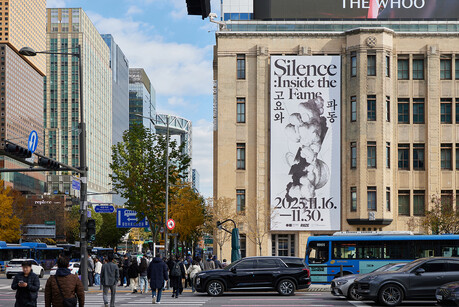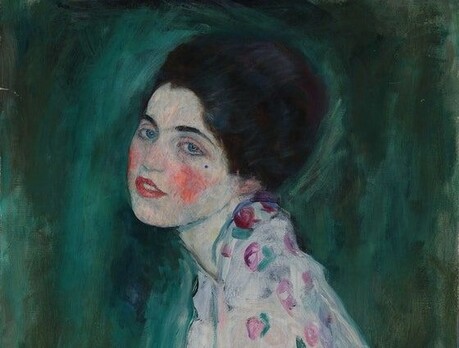A 69-year-old building concierge in Madrid has become an unwitting figure in one of Spain's most unusual art recovery stories after she unknowingly stored a missing Pablo Picasso painting for two weeks, thinking it was simply another delivery package. Dolores, who works alongside her husband Armando at an apartment complex in Madrid's upscale Chamartín district, found herself at the center of a police investigation that initially treated the couple as potential suspects in an international art theft ring.
The bizarre chain of events began on October 6 when the CajaGranada Cultural Center in Granada discovered that one of 57 artworks scheduled for exhibition had gone missing. The lost piece was Picasso's "Still Life with Guitar," a small but significant gouache and graphite work from 1919 that measures just 12.7 by 9.8 centimeters and is valued at approximately $692,000. The painting is considered one of the earliest examples of the Cubist movement, depicting a guitar on a table in front of an open window with geometric planes reflecting in the instrument.
"I found the package leaning against the door," Dolores explained, pointing to a cluttered table in her tiny concierge office where she had stored the artwork among cardboard boxes containing newspapers and magazines. "I thought it was from Amazon or something, but I don't get involved in that. I brought it to the concierge's office and put it here." The small workspace, measuring just two square meters, is filled with delivery slips, residents' keys, and personal items including photos of Pope John Paul II and various religious figures.
The painting had apparently fallen from a transport van during its journey from Madrid to Granada, landing near the entrance of the apartment complex where Dolores and her husband have worked for more than 20 years. For two weeks, while Spanish police conducted an intensive investigation questioning transporters and reviewing security footage, the missing masterpiece sat unnoticed among everyday packages in the humble concierge office.
The discovery came about through a chance conversation between Armando and a neighbor who mentioned hearing about a lost package. When Armando casually mentioned this to his wife, Dolores remembered the small, lightweight package wrapped in bubble wrap that she had retrieved from near the building's entrance. "Ahhh, it must be this one," she thought, not realizing she was about to become the center of a major police operation.
On October 22, three police officers arrived at their door along with the niece of the painting's owner. What followed was an intense interrogation that left both Dolores and Armando traumatized. "They separated my husband so we couldn't talk. Then they took him to the Canillas police station," Dolores recalled. The investigation involved officers from multiple specialized units, including the Scientific Police and Heritage Brigade, with about a dozen officers ultimately participating in the operation.
During three hours of questioning, Dolores repeatedly explained her innocent role in the incident. "The police sat me down at the table and for three hours they asked me how the painting had come to be in my house, how I found it, what I did with it, about my job. And I repeated the same thing over and over again: I was coming in from the street when I saw a package leaning against the fence. I thought it was a mirror," she said, referring to her assumption about the artwork's contents.
The timing of the investigation proved particularly stressful for the couple due to two unfortunate coincidences. First, just days before the Picasso was discovered, valuable jewels had been stolen from the Louvre in Paris, making international police forces especially vigilant about art theft rings. This led investigators to initially suspect that Dolores and Armando might be connected to an international network of art thieves. Second, during the height of the investigation, Dolores's mother passed away, adding personal grief to an already overwhelming situation.
Armando's experience at the police station included what he described as a "good cop/bad cop" routine, with officers alternating between casual conversation about his loyalty to Real Madrid football club and intensive questioning about the package's origins. The couple, who supplement their concierge work by running a nearby newsstand, had been following media coverage of the missing Picasso without realizing they were central to the story.
Both Dolores and Armando are originally from Peru and have expressed particular concern about how this incident might affect their reputation, both locally and in their home country. "What really matters to her is that no one in Peru thinks she wanted to steal a Picasso," the article notes. Dolores has been losing sleep over fears that people might think she attempted fraud or theft, repeatedly emphasizing their honesty and work ethic.
The couple's ordeal has left lasting effects on their daily routine and willingness to help neighbors. "I don't pick up anyone's packages anymore, even if they're going to explode," both said anxiously. When a resident recently asked Dolores to let in a heating technician, she had to decline, explaining it would be better not to risk any similar situations. "Once bitten, twice shy," they said, using one of many proverbs they employ to make sense of their experience.
The investigation concluded that the entire incident was simply an unfortunate accident, with no criminal intent on anyone's part. However, the couple feels they have received no acknowledgment of their distress or recognition of their innocence. "We missed having someone ask us how we were doing. I'm not saying they should give us anything, but at least a hug from the king to acknowledge that we are good people would be enough," Dolores said, her voice breaking with emotion.
The case highlights the sometimes absurd intersections between high art and everyday life, where a priceless Cubist masterpiece can sit unnoticed in a working-class concierge office for weeks. For Dolores and Armando, who wake at 5:30 each morning to open their newsstand and pride themselves on their honest work, the experience has been a painful reminder of how quickly ordinary citizens can become entangled in extraordinary circumstances beyond their control.






























